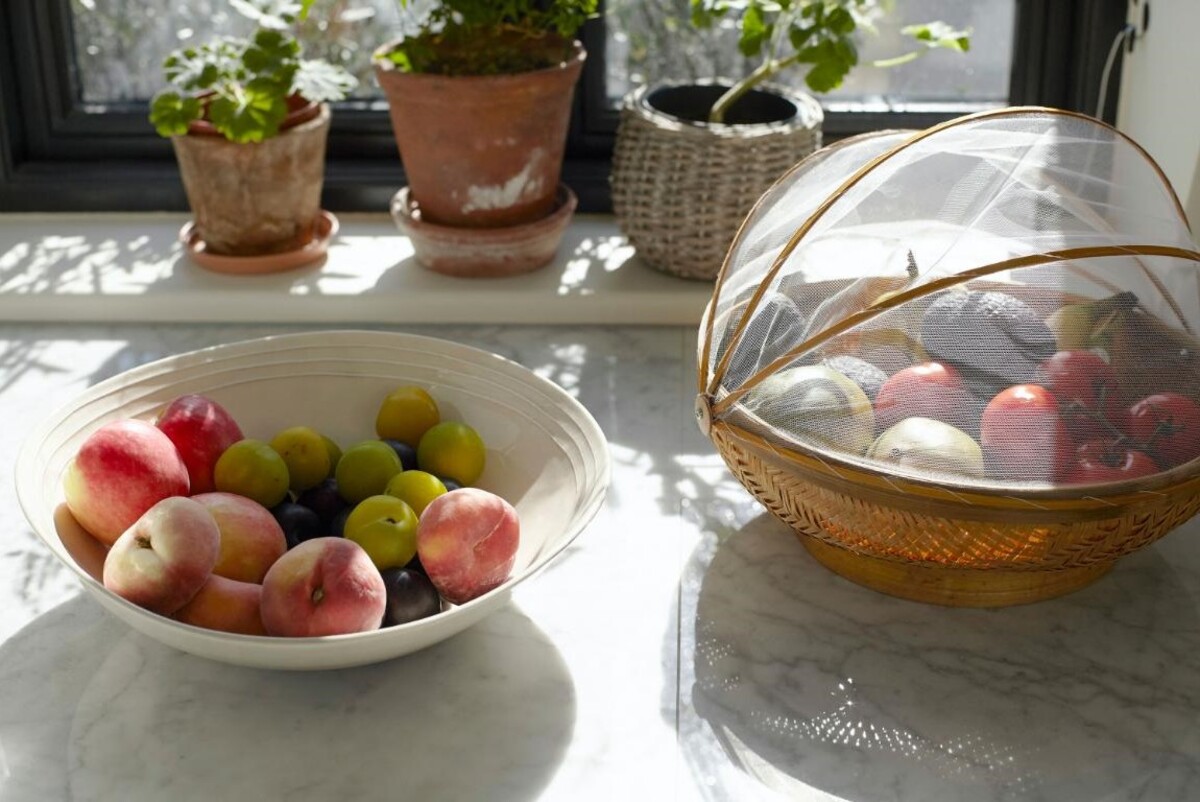

Articles
How To Store Fruit To Avoid Fruit Flies
Modified: August 17, 2024
Learn how to store fruit properly to prevent fruit flies from infesting your kitchen. Read our informative articles for tips and tricks on keeping your fruit fresh for longer.
(Many of the links in this article redirect to a specific reviewed product. Your purchase of these products through affiliate links helps to generate commission for Storables.com, at no extra cost. Learn more)
Introduction
Fruit flies are tiny flying insects that can be a nuisance when they infest your home. These pesky creatures are attracted to the ripened fruits and vegetables in your kitchen, and once they find their way inside, they can quickly multiply and become a major annoyance.
Not only are fruit flies annoying, but they can also contaminate your food and spread bacteria. If left unchecked, they can quickly take over your kitchen and become a persistent problem. The good news is that there are effective ways to store your fruit and prevent fruit flies from becoming a bother.
In this article, we will dive into the topic of fruit fly prevention and explore the best practices for storing your fruits to avoid attracting these pesky insects. Understanding fruit fly behavior and implementing the proper storage techniques can help you keep your kitchen fruit fly-free and preserve the freshness of your produce.
Key Takeaways:
- Keep fruit flies at bay by refrigerating ripe fruits, separating ripe and unripe fruits, and using airtight containers. Maintain a clean kitchen, use natural repellents, and follow preventive measures to enjoy a fruit fly-free environment.
- Implement proper fruit storage techniques, natural repellents, and preventive measures to deter fruit flies from infesting your kitchen. Stay vigilant and enjoy fresh, pest-free produce by incorporating these practices into your routine.
Read more: How To Store Peaches To Avoid Fruit Flies
Understanding Fruit Flies
Fruit flies, scientifically known as Drosophila melanogaster, are small insects that are commonly found in homes, grocery stores, and other areas where fruits and vegetables are present. These flies are attracted to the fermenting substances produced by overripe or decaying fruits, making them a common problem in kitchens and fruit markets.
Fruit flies have a short life cycle, going from egg to adult in just a week. This rapid reproduction cycle allows their population to quickly multiply if the conditions are favorable. Female fruit flies lay their eggs on the surface of overripe fruits, and within a day or two, the eggs hatch into larvae or maggots. These larvae feed on the fermenting fruit, causing it to decay further.
What makes fruit flies particularly bothersome is their ability to detect the scent of ripened fruits from a considerable distance. They are highly attracted to the aroma released by fruits during the ripening process. Once they find a source of food, such as a bowl of bananas on your kitchen counter, they will lay their eggs and begin the vicious cycle of infestation.
It’s essential to understand that fruit flies are not only drawn to whole fruits but also to fruit peels, fruit juices, and even fermented beverages like wine and beer. The tiny size of fruit flies allows them to enter through small openings in fruit packaging or lids of containers, making it difficult to keep them out completely.
Now that we have a better understanding of fruit flies and their behavior, we can move on to exploring the types of fruits that are particularly attractive to them and the best ways to store fruits to deter fruit flies.
Common Fruits Attracting Fruit Flies
While fruit flies can be attracted to a wide range of fruits and vegetables, certain types have been found to be more enticing to them. By being aware of these fruits, you can take extra precautions when storing them to minimize the risk of attracting fruit flies into your home.
Here are some common fruits that fruit flies are particularly attracted to:
- Bananas: The sweet aroma emitted by ripe bananas makes them a top choice for fruit flies.
- Apples: Whether it’s a whole apple or sliced, the fragrance of apples can quickly attract fruit flies.
- Grapes: These bite-sized fruits, especially when they begin to ferment, are highly appealing to fruit flies.
- Peaches: The soft and juicy texture of peaches combined with their fruity aroma can easily attract these flies.
- Tomatoes: The sweet and tangy smell of ripe tomatoes can lure fruit flies into your kitchen.
- Melons: Watermelons, cantaloupes, and honeydews are particularly attractive to fruit flies, especially when they are overripe.
- Oranges: The citrusy fragrance of oranges can make them a target for fruit fly infestation.
Remember, fruit flies are not limited to these fruits alone. They can also be attracted to other fruits like pears, plums, apricots, and berries. Additionally, they may be drawn to fruit juices, fruit peels, and fruit scraps that are left out in the open.
By being cautious with the storage of these fruits and implementing proper techniques, you can significantly reduce the chances of fruit flies taking over your kitchen.
Proper Fruit Storage Techniques
Proper fruit storage is crucial in preventing fruit flies from infesting your kitchen. By following these techniques, you can maintain the freshness of your fruits while deterring fruit flies from invading.
- Refrigerate ripe fruits: Fruits that have ripened should be stored in the refrigerator. The lower temperature slows down the ripening process and inhibits fruit flies from being attracted to the sweet aroma.
- Separate ripe and unripe fruits: It’s important to keep ripe fruits separate from unripe ones. Ripe fruits emit ethylene, a natural gas that speeds up the ripening process. By keeping them separate, you can prevent the spread of ethylene and avoid attracting fruit flies.
- Store fruits in airtight containers: Consider storing fruits in airtight containers to prevent fruit flies from accessing them. Mason jars or plastic containers with tight-fitting lids can be effective in keeping the flies out.
- Use fruit fly repellent bags: Specialized fruit fly repellent bags are available in the market. These bags are designed with small holes that prevent fruit flies from entering while allowing air circulation for the fruits.
- Keep fruit bowls covered: If you prefer to display fruits in a bowl on your kitchen counter, make sure to cover it with a mesh or net to prevent fruit flies from landing on the fruits.
- Check for and discard overripe fruits: Regularly inspect your fruits for any signs of overripeness or spoilage. If you find any affected fruits, promptly discard them in sealed trash bags to prevent fruit flies from being attracted to them.
Following these storage techniques will not only help deter fruit flies but also ensure the longevity and quality of your fruits. By taking preventative measures and maintaining a clean and organized fruit storage system, you can significantly reduce the likelihood of a fruit fly infestation in your kitchen.
Store ripe fruit in the refrigerator to avoid attracting fruit flies. Keep the fruit in airtight containers or sealed bags to prevent access for fruit flies.
Cleaning and Maintaining Storage Areas
In addition to proper fruit storage techniques, it is essential to keep your storage areas clean and well-maintained to prevent fruit flies from finding a breeding ground. Fruit flies are attracted to damp, dirty, and decaying environments, making it crucial to practice good hygiene in your kitchen.
Here are some tips for cleaning and maintaining your storage areas:
- Clean up spills immediately: Any juice or liquid spills should be promptly cleaned up. Fruit flies are attracted to sugary substances, and even a small spill can entice them to gather and infest the area.
- Wipe down countertops and surfaces frequently: Regularly wipe down your countertops, shelves, and other surfaces with a mild cleaning solution. Removing any food residues and maintaining cleanliness will discourage fruit flies from lingering.
- Empty and clean trash cans regularly: Fruit flies can breed in decaying organic matter, such as food scraps in your trash can. Emptying and cleaning your trash cans regularly, using liners, and securing the lids tightly will help prevent fruit flies from accessing potential breeding sites.
- Organize storage areas: Keep your storage areas well-organized and clutter-free. Properly store non-refrigerated fruits in designated areas to minimize potential infestation and make it easier to detect and remove any overripe or spoiled fruits.
- Regularly check and clean your refrigerator: Check your refrigerator for any spoiled or rotting fruits. Clean spills and remove any old or forgotten fruits from your refrigerator to prevent fruit fly infestation.
- Inspect and clean produce bags: If you use produce bags to carry fruits from the grocery store, ensure they are clean and free from any fruit remnants or spills. Wash reusable bags regularly to eliminate any potential attractants for fruit flies.
By implementing these cleaning and maintenance practices, you create an environment that is unattractive to fruit flies. A clean and well-organized kitchen will not only help prevent fruit fly infestations but also promote overall food safety and hygiene.
Read more: How To Store Bananas To Avoid Fruit Flies
Natural Repellents for Fruit Flies
In addition to proper storage techniques and cleaning practices, you can use natural repellents to further deter fruit flies from invading your kitchen. These natural remedies are safe, eco-friendly alternatives to chemical-based insecticides.
Here are some effective natural repellents for fruit flies:
- Vinegar Trap: Fill a small bowl with apple cider vinegar or red wine vinegar and add a few drops of dish soap. Cover the bowl with plastic wrap and poke several small holes in it. The aroma of the vinegar will attract the flies, and the soap will cause them to drown.
- Fruit Fly Trap: Create a simple trap by placing a piece of overripe fruit or a small amount of fruit juice in a jar. Cover the top with plastic wrap and secure it with a rubber band. Poke a few small holes in the plastic wrap. The fruit flies will be lured in by the scent and become trapped in the jar.
- Basil or Mint: Planting basil or mint herbs near your kitchen can act as a natural deterrent for fruit flies. These aromatic plants emit scents that repel the flies.
- Lemon Essential Oil: Mix a few drops of lemon essential oil with water in a spray bottle. Use this natural repellent to spray around your kitchen, especially near fruit storage areas and entry points, to deter fruit flies.
- Clove Citrus Pomander: Insert whole cloves into an orange or lemon, leaving only the tips of the cloves exposed. Place the pomander near fruit bowls or storage areas. The smell of cloves repels fruit flies.
- Vinegar and Dish Soap Spray: Create a spray solution by mixing equal parts vinegar and water with a few drops of dish soap. Spray this solution on kitchen surfaces, particularly near fruit storage areas, to repel fruit flies.
These natural repellents can help in keeping fruit flies away from your kitchen. However, it’s important to remember that they are primarily deterrents rather than complete solutions. It’s crucial to combine these natural remedies with proper fruit storage techniques and regular cleaning practices for effective fruit fly prevention.
Other Preventive Measures
In addition to proper fruit storage and natural repellents, there are a few other preventive measures you can take to minimize the risk of fruit fly infestation in your kitchen.
Here are some additional steps to consider:
- Inspect produce before purchasing: When buying fruits and vegetables, carefully inspect them for any signs of damage or overripeness. Avoid purchasing fruits that show signs of decay or infestation to prevent introducing fruit flies into your home.
- Dispose of spoiled fruits and vegetables: If you find any fruits or vegetables that are spoiled or infested, promptly dispose of them in sealed trash bags. Do not compost them, as it may attract fruit flies and lead to a potential infestation in your garden.
- Keep kitchen windows and doors closed: Ensure that windows and doors in your kitchen are properly screened and sealed to prevent fruit flies from entering. Installing screens or using fly nets can help keep these pests out.
- Avoid leaving dirty dishes out: Fruit flies are attracted to food residues left on dirty dishes and utensils. It’s important to wash and store dishes promptly to eliminate potential food sources for fruit flies.
- Regularly clean drains: Fruit flies can breed and thrive in damp areas, such as sink drains. Flush drains regularly with boiling water or a mixture of vinegar and baking soda to keep them clean and prevent fruit flies from establishing a breeding site.
- Minimize moisture: Fruit flies are drawn to humid environments. Use fans or dehumidifiers to reduce moisture levels in your kitchen and discourage fruit fly activity.
By implementing these preventive measures, you can significantly reduce the likelihood of fruit fly infestations in your kitchen. Remember, consistency is key when it comes to fruit fly prevention, so make these practices a regular part of your kitchen routine.
Conclusion
Fruit flies can be a persistent nuisance in the kitchen, but with the right knowledge and preventive measures, you can keep them at bay. By understanding fruit fly behavior and implementing proper fruit storage techniques, you can greatly reduce the risk of infestation.
Remember to refrigerate ripe fruits, separate ripe and unripe fruits, and store fruits in airtight containers. Additionally, keeping your storage areas clean and well-maintained, using natural repellents, and following other preventive measures will help deter fruit flies from invading your kitchen.
Inspecting produce before purchasing, promptly disposing of spoiled fruits, and keeping kitchen windows and doors closed are vital steps in preventing fruit fly entry. Cleaning drains, minimizing moisture, and ensuring dishes are washed promptly are additional measures that can make a significant impact.
By incorporating these practices into your routine and staying vigilant, you can create an environment that is unattractive to fruit flies and enjoy fresh, fruit fly-free produce in your kitchen.
Now that you have a comprehensive understanding of how to store fruits to avoid fruit flies, it’s time to implement these strategies and enjoy a pest-free kitchen.
Excited to keep your fruit fresh and your kitchen free of pests? Dive deeper into our guide on the latest 12 Best Fruit Storage For 2024 solutions designed to make your life easier in 2024. While you’re at it, don't miss our expert insights on effective How To Get Rid Of Pantry Moths: Pest Control Experts Explain strategies to rid your pantry of moths. Both articles are packed with practical tips and tricks that promise a cleaner, healthier home environment. Check them out now for more detailed advice!
Frequently Asked Questions about How To Store Fruit To Avoid Fruit Flies
Was this page helpful?
At Storables.com, we guarantee accurate and reliable information. Our content, validated by Expert Board Contributors, is crafted following stringent Editorial Policies. We're committed to providing you with well-researched, expert-backed insights for all your informational needs.

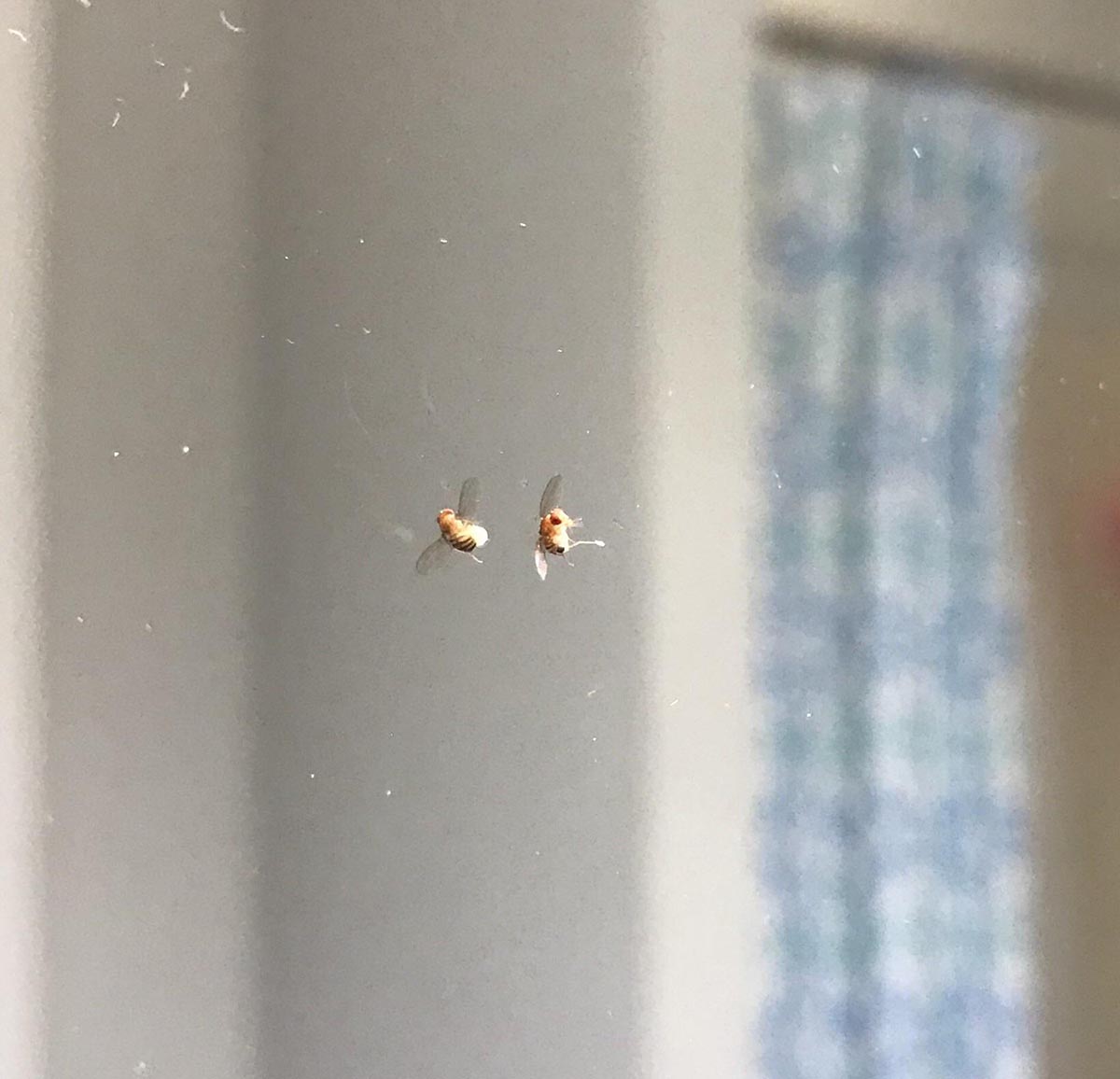
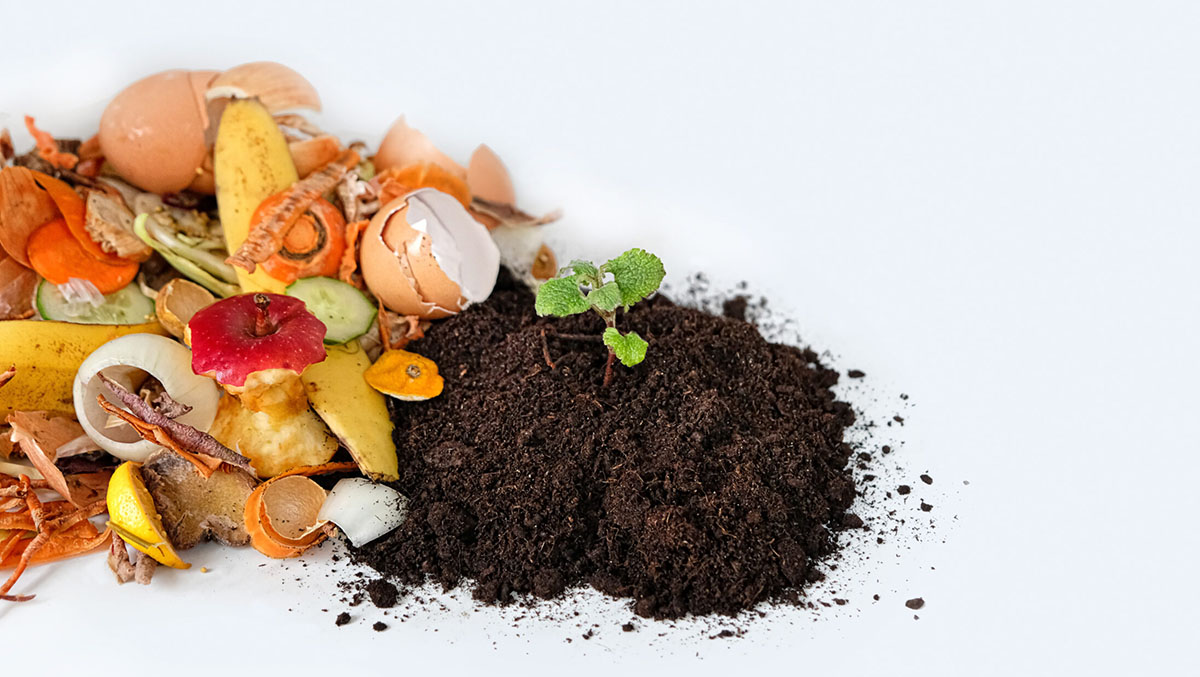

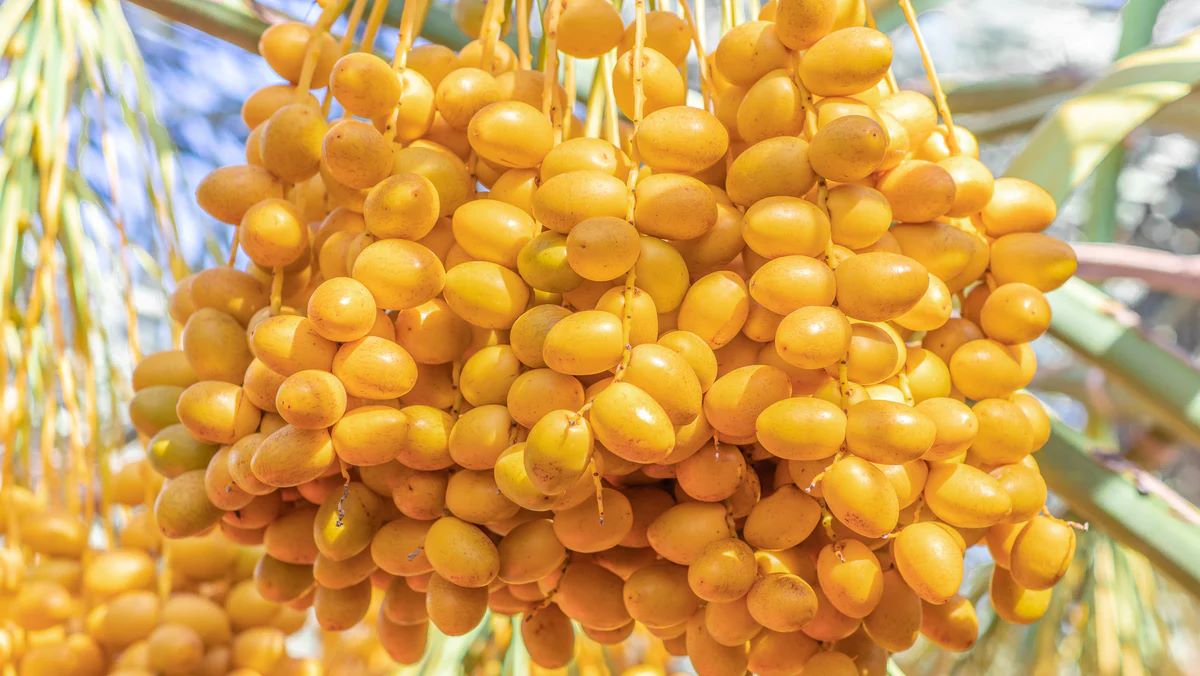


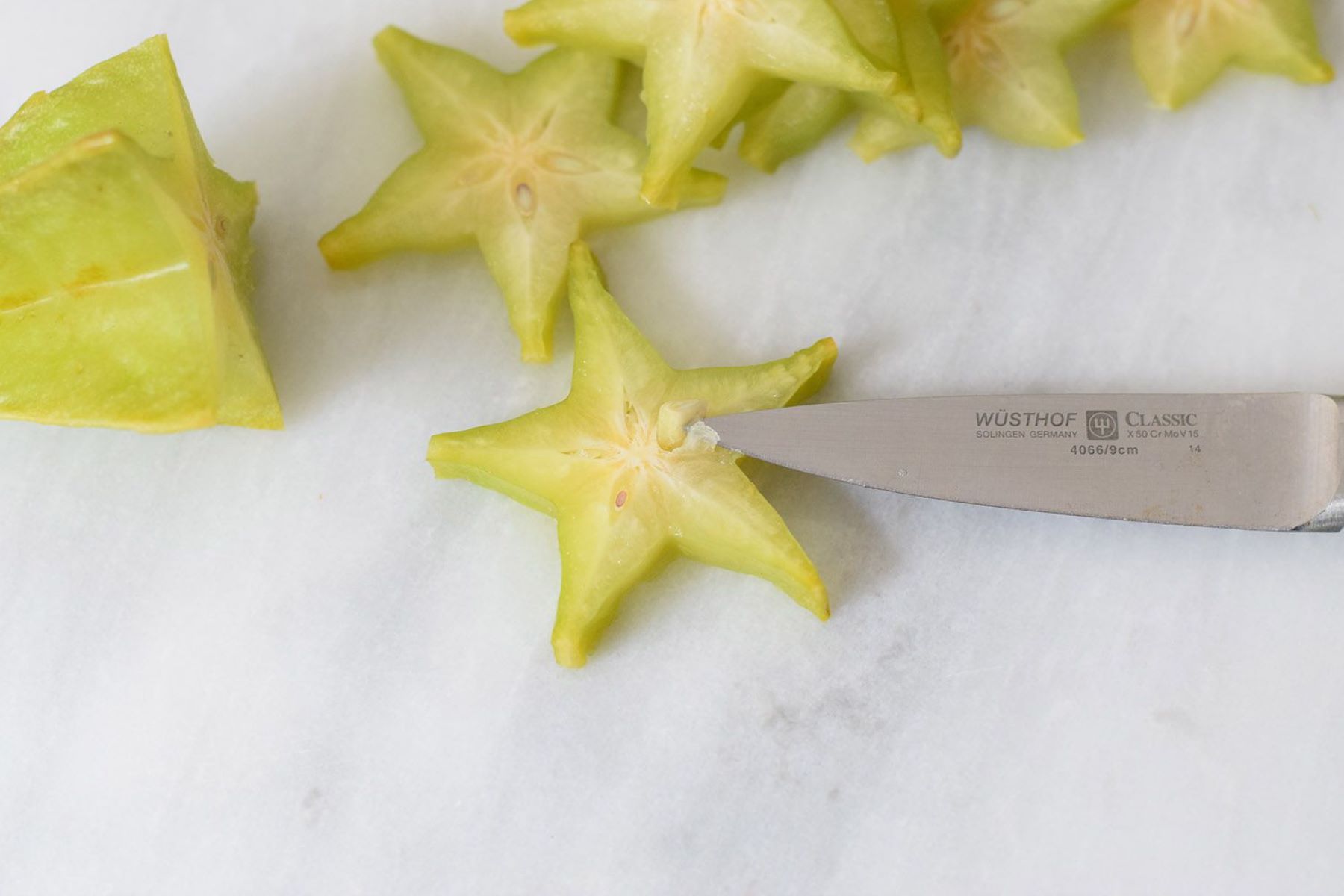

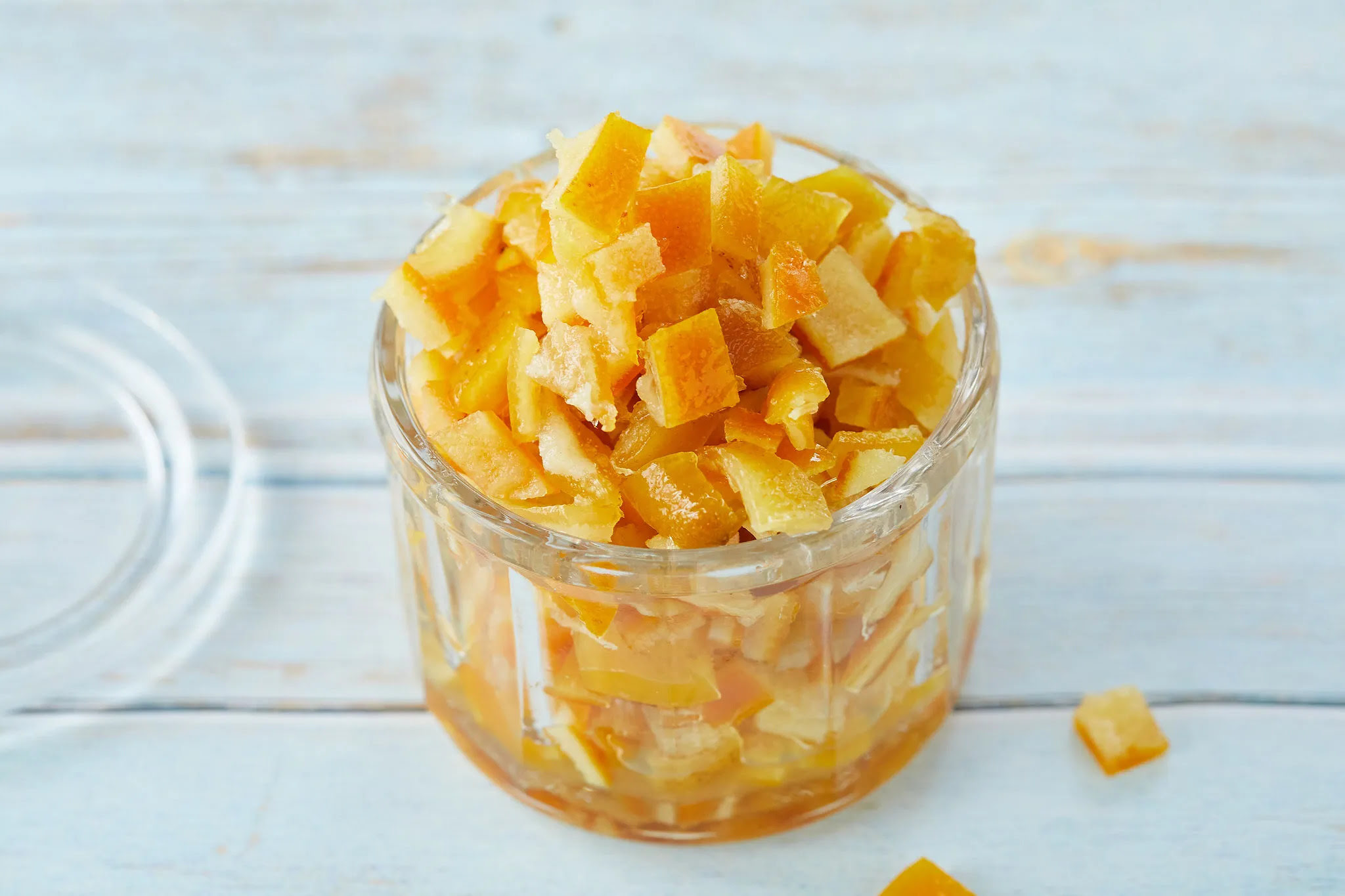
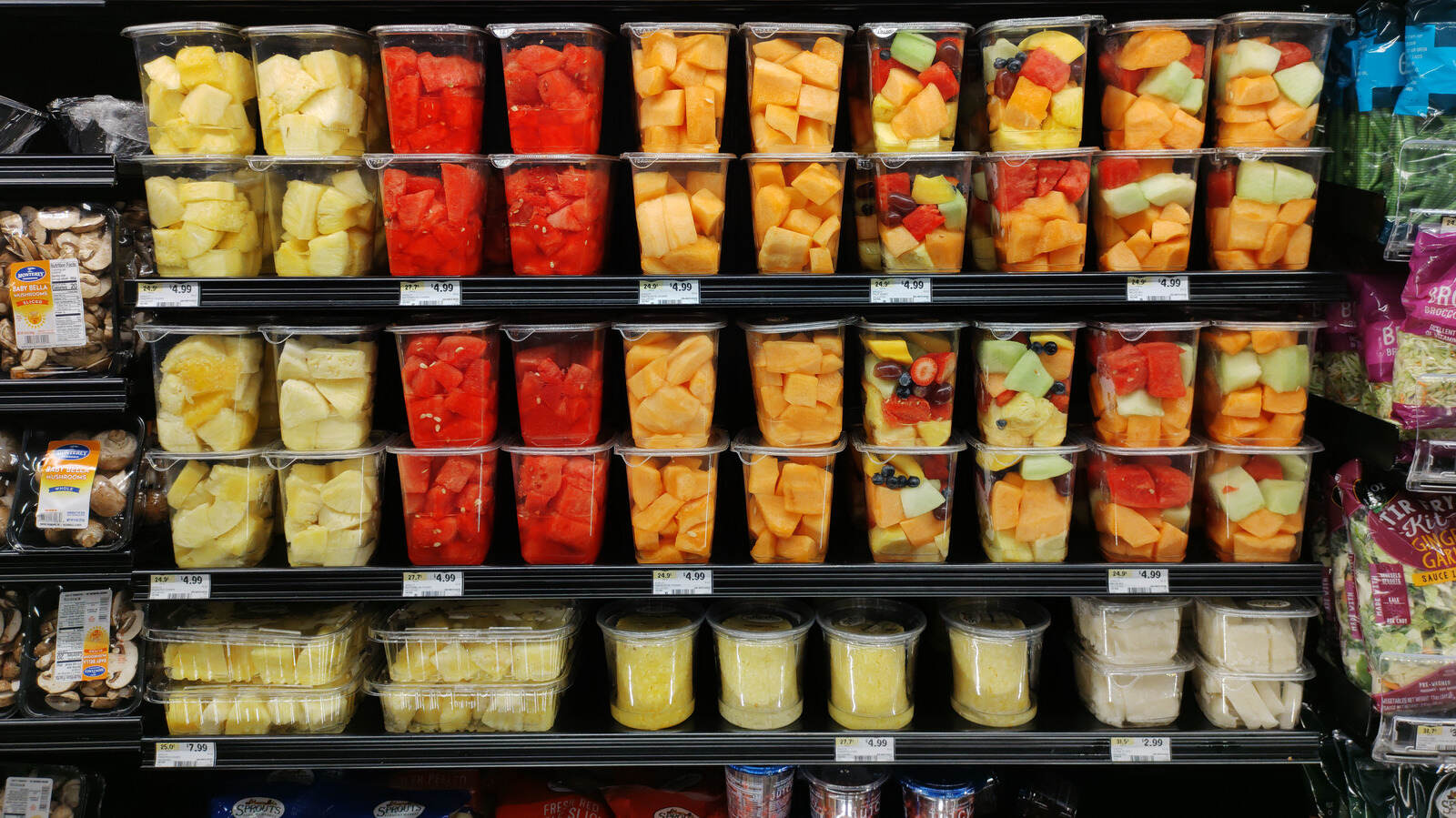
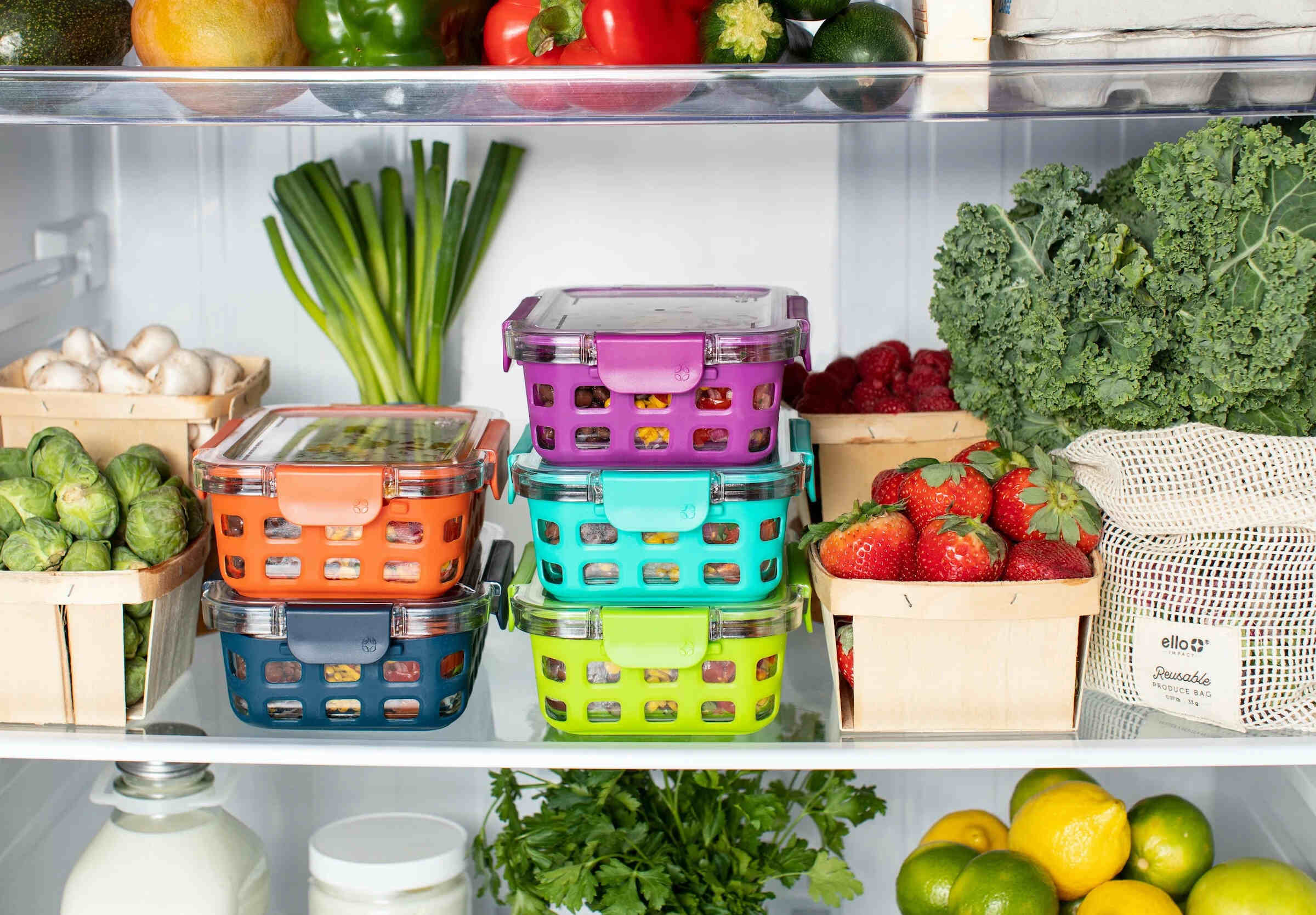
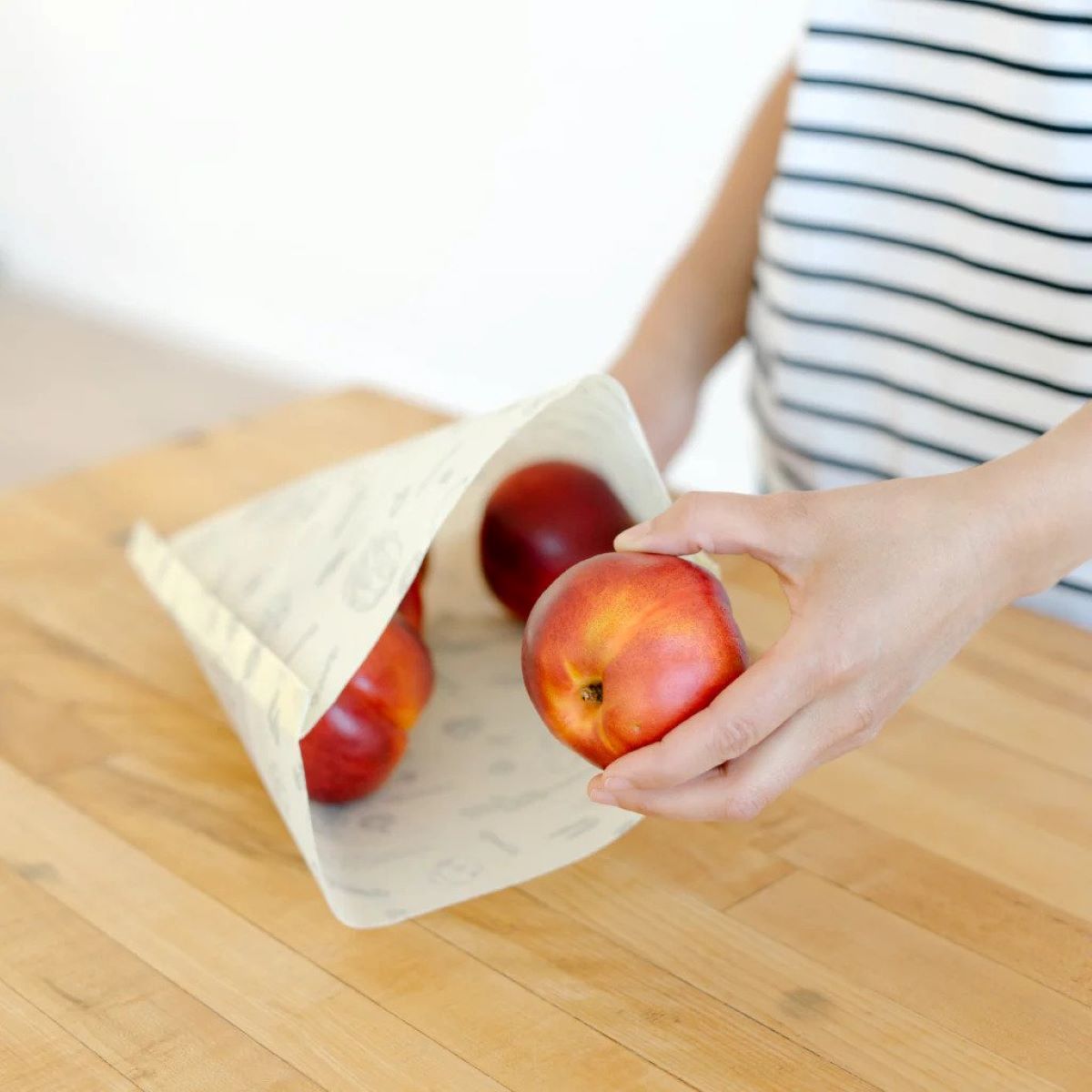
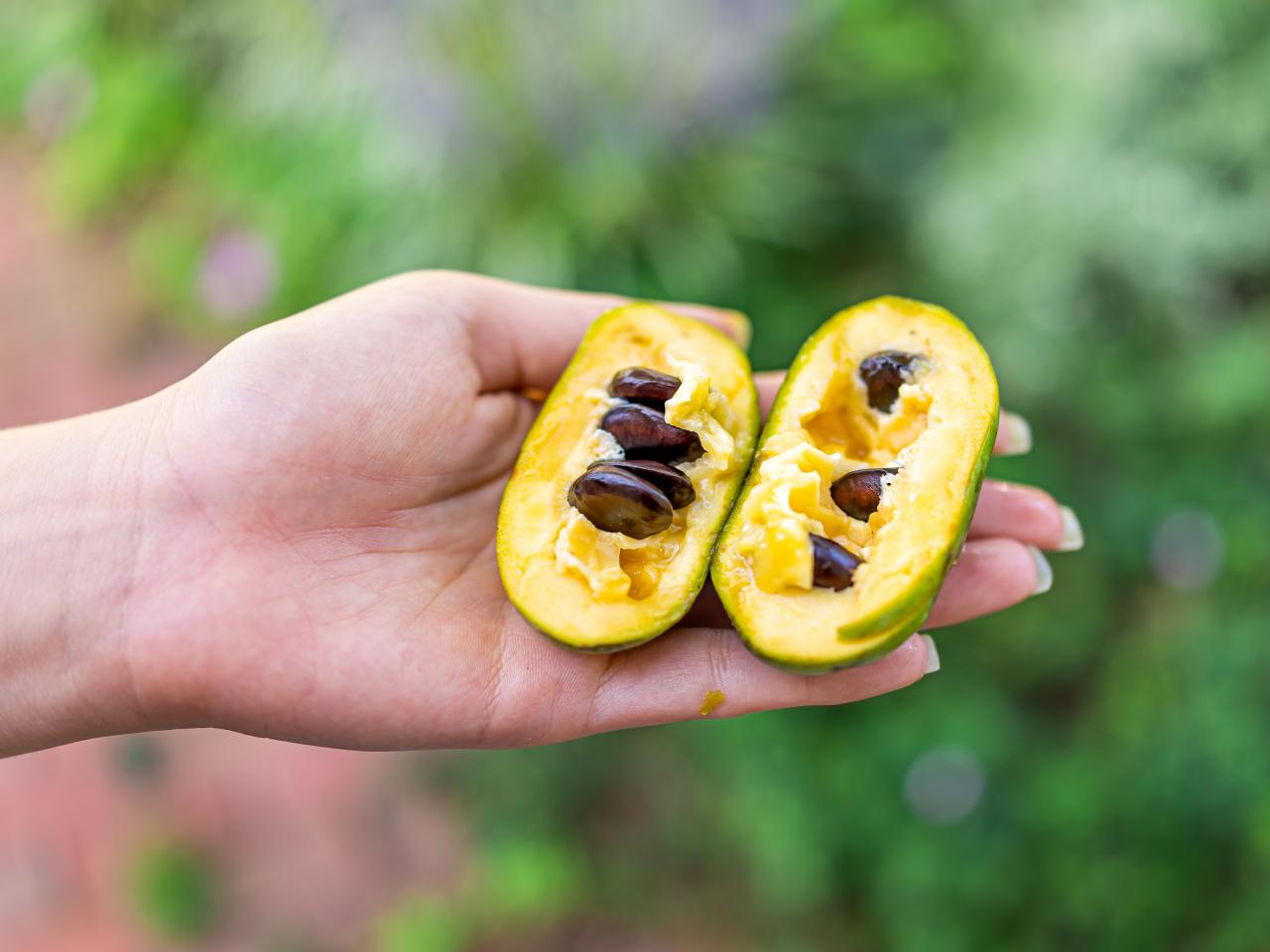

0 thoughts on “How To Store Fruit To Avoid Fruit Flies”